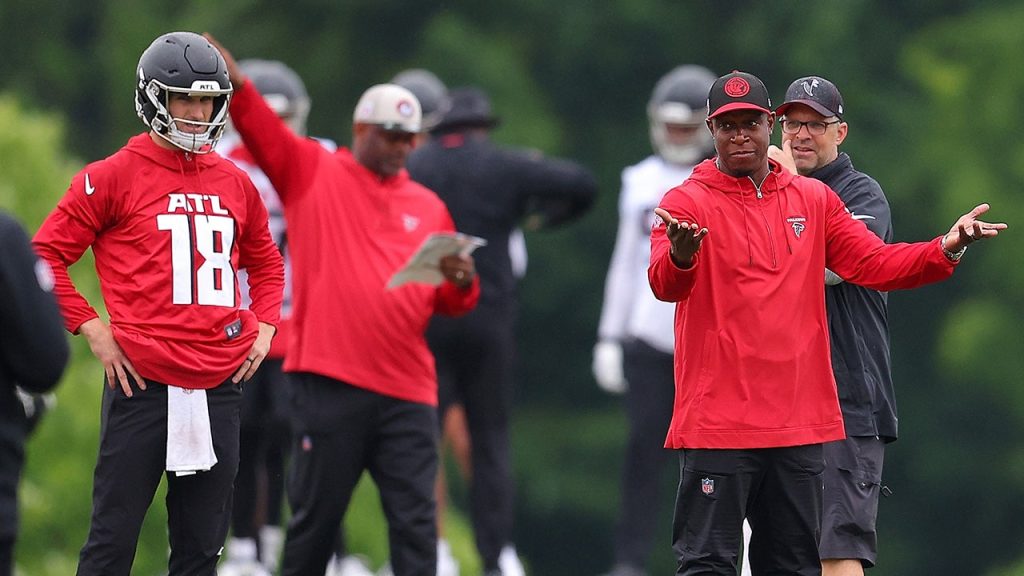The Atlanta Falcons, once poised to dominate the NFC South, found themselves mired in a four-game losing streak after a promising start to the season. Their November victory against the Dallas Cowboys proved a fleeting respite before a string of disappointing performances raised questions about the team’s direction. A narrow, unconvincing win against the Las Vegas Raiders in Week 15 temporarily halted their slide, but the offensive struggles persisted, highlighting the ongoing debate surrounding quarterback Kirk Cousins’s performance and the potential for rookie Michael Penix Jr. to take the helm.
The victory against the Raiders, a team with only two wins on the season, offered little reassurance about the Falcons’ trajectory. The offense sputtered, managing a single touchdown and relying heavily on running back Bijan Robinson’s 125 rushing yards to secure the 15-9 win. Cousins, a veteran quarterback with a hefty contract, continued his troubling trend of turnovers, adding another interception to his league-leading total. This performance fueled speculation about his future with the team and the possibility of benching him in favor of the young, highly-touted Penix Jr.
Head coach Raheem Morris, known for his staunch defense of Cousins, subtly shifted his stance after the Raiders game, acknowledging the need for improved quarterback play. While avoiding direct criticism of Cousins, Morris’s statement that the team “has to play better at the quarterback position” hinted at growing concerns about the veteran’s declining performance. The subpar offensive showing, totaling just 261 yards, exposed the Falcons’ reliance on Robinson and the lack of effectiveness in the passing game, placing further pressure on Cousins and the coaching staff.
The Falcons’ predicament is further complicated by the significant financial investment in Cousins. His four-year, $180 million contract, with a substantial guaranteed portion, makes benching him a difficult decision with significant financial ramifications. The team’s front office must weigh the short-term benefits of potentially starting Penix Jr. against the long-term financial commitment to Cousins. This delicate balance between immediate performance and long-term strategy adds another layer of complexity to the quarterback controversy.
The decision to draft Michael Penix Jr. in the first round, weeks after signing Cousins, initially raised eyebrows. Penix Jr.’s impressive college career at the University of Washington, culminating in leading the NCAA in passing yards in 2023, made him an attractive prospect. However, the move seemed to signal a long-term plan rather than an immediate need, especially with Cousins’s early-season success. The veteran quarterback’s 509-yard performance in an overtime victory against the Tampa Bay Buccaneers in early October seemingly justified the team’s faith in him, temporarily quieting the whispers about Penix Jr.’s potential role.
Despite their recent struggles, the win over the Raiders kept the Falcons’ playoff hopes alive, albeit tenuously. The Tampa Bay Buccaneers, riding a four-game winning streak, currently lead the NFC South, adding pressure on the Falcons to find a solution at quarterback and regain their early-season form. The team faces a critical juncture, needing to decide whether to stick with the struggling but highly-paid veteran or turn to the promising rookie in a bid to salvage their season and secure a playoff berth. The decision carries significant implications for the team’s immediate future and long-term prospects in a competitive NFC South.

